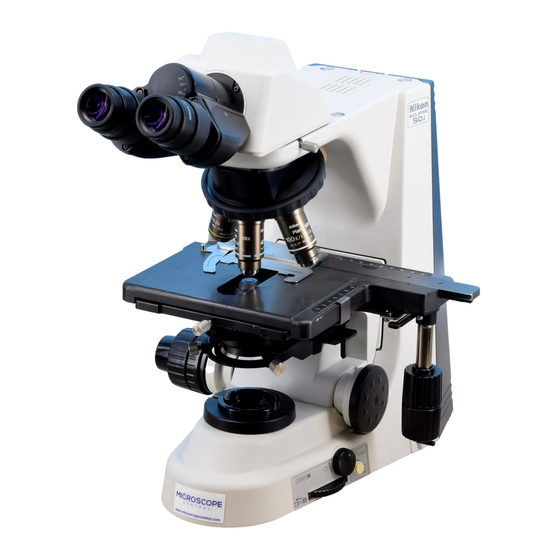Nikon COOLSHOT 20 i GII Instruction Manual - Page 3
Browse online or download pdf Instruction Manual for Measuring Instruments Nikon COOLSHOT 20 i GII. Nikon COOLSHOT 20 i GII 24 pages.

Introduction
Read this First
En
Thank you for purchasing the Nikon Laser Rangefinder.
Fr
Before using the product, read this manual thoroughly to ensure proper use.
After reading this manual, keep it in a readily accessible place for future reference.
l l About the manual
• No part of the manual may be reproduced, transmitted, transcribed, stored in a retrieval system, or
translated into any language in any form, by any means, without Nikon's prior written permission.
• Illustrations and display content shown in this manual may differ from the actual product.
• Nikon will not be held liable for any errors this manual may contain.
• The appearance, specifications, and capabilities of this product are subject to change without notice.
l l About controls for radio interference
• This device complies with Part 15 of the FCC Rules. Operation is subject to the following two conditions:
(1) This device may not cause harmful interference, and
(2) This device must accept any interference received, including interference that may cause undesired
operation.
• This equipment has been tested and found to comply with the limits for a Class B digital device, pursuant
to Part 15 of the FCC Rules and to EU EMC directive. These limits are designed to provide reasonable
protection against harmful interference in a residential installation. This equipment generates, uses and
can radiate radio frequency energy and, if not installed and used in accordance with the instructions, may
cause harmful interference to radio communications. However, there is no guarantee that interference
will not occur in a particular installation. If this equipment does cause harmful interference to radio or
television reception, which can be determined by turning the equipment off and on, the user is
encouraged to try to correct the interference by one or more of the following measures:
• Reorient or relocate the receiving antenna.
• Increase the separation between the equipment and receiver.
• Consult the dealer or an experienced radio/TV technician for help.
Notice for customers in Canada
CAN ICES-3(B)/NMB-3(B)
4
